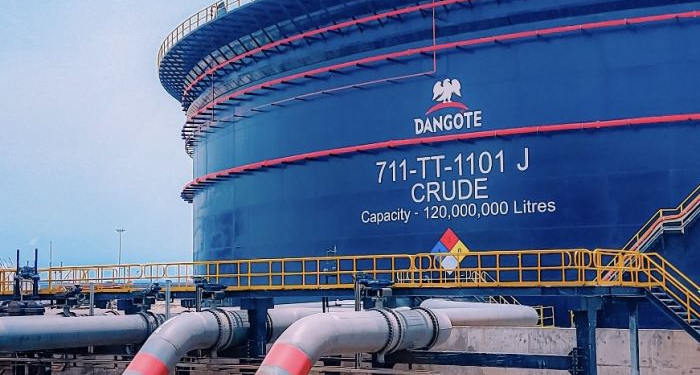The commencement of fuel production at the Dangote Refinery in September marked a significant turning point for Nigeria, signaling the country’s renewed ability to refine its own crude oil after more than a decade of relying on imports. Trucks filled with gasoline, Nigeria’s primary fuel, rolled out of the refinery’s Lagos premises, signaling the start of a new era in the nation’s energy sector. For the first time in its seven-decade history as a petroleum producer, Africa’s largest oil exporter now has the capacity to refine most of the crude it extracts, thanks to the Dangote Refinery’s 650,000 barrels-per-day capacity.
Owned by Africa’s richest man, Aliko Dangote, the refinery began operations in January and has steadily increased output. By September, it was producing 500,000 barrels of refined petroleum products daily and is on track to reach its full 650,000-barrel-per-day capacity within a year. This milestone offers Nigeria the prospect of significantly enhancing its balance of trade by reducing fuel imports and exporting refined petroleum products instead.
The Dangote Refinery, combined with smaller private refineries, currently contributes an installed refining capacity of approximately 740,000 barrels per day. When added to the 445,000 barrels per day from Nigeria’s four state-owned refineries operated by the Nigerian National Petroleum Company (NNPC), the total domestic refining capacity approaches 1.2 million barrels daily. This could be a game-changer for Nigeria, a member of the Organization of the Petroleum Exporting Countries (OPEC), as it provides the potential to export more value-added refined products, increasing national revenue and boosting trade.
A New Era of Refining Independence
For years, Nigeria’s refining sector has been riddled with inefficiency, poor management, and underutilization of its state-owned refineries, which rarely operated at full capacity. This led to the country importing the majority of its refined petroleum products despite being one of the world’s largest oil producers. The Dangote Refinery, with its modern infrastructure and vast capacity, changes the narrative by offering a solution to Nigeria’s dependence on foreign imports and the associated pressure on foreign exchange reserves.
Moreover, the refinery’s impact extends beyond fuel production. It also has the capacity to produce a wide range of petrochemical products, including plastics and fertilizers, further enhancing Nigeria’s ability to diversify its exports and reduce reliance on oil alone. This diversification aligns with Nigeria’s broader economic ambitions to strengthen its industrial base and create jobs in manufacturing and related sectors.
Challenges Still Loom
Despite the promising outlook, significant challenges remain for Nigeria’s oil sector and the broader economy. While the Dangote Refinery boosts Nigeria’s domestic refining capacity, the country still grapples with longstanding issues of governance, corruption, and inefficiencies within its state-owned enterprises. The NNPC’s four refineries, despite their significant installed capacity, have been plagued by poor maintenance and management, contributing to the country’s reliance on fuel imports.
Additionally, the success of the Dangote Refinery does not guarantee lower fuel prices for Nigerians. As the country has recently ended its fuel subsidy regime, prices at the pump are expected to fluctuate based on global oil market conditions. This could exacerbate inflationary pressures on the local economy, particularly for a population already facing high unemployment and cost-of-living challenges.
Furthermore, the refinery’s ability to sustain high output levels will depend on Nigeria’s broader economic and political stability. Security concerns, particularly in the Niger Delta region, where most of the country’s crude oil is extracted, continue to pose risks to production and distribution. Any disruptions in crude supply or refining operations could hinder the refinery’s potential to operate at full capacity and achieve its economic goals.
A Step Forward, but the Road Ahead is Long
The launch of the Dangote Refinery is undoubtedly a milestone for Nigeria, offering the potential to reduce its dependence on fuel imports and unlock new revenue streams through the export of refined petroleum products. However, this progress must be sustained by addressing the broader structural issues that have long plagued Nigeria’s oil sector.
The refinery alone cannot resolve the inefficiencies of the state-run NNPC refineries, nor can it shield the economy from global oil price volatility. While the refinery brings optimism for Nigeria’s trade balance and industrial capacity, the government must prioritize reforms, improve infrastructure, and ensure stable governance to fully capitalize on this opportunity.
As Nigeria embarks on this new chapter in its refining history, the Dangote Refinery is a step in the right direction, but it will take continued investment, political will, and a commitment to good governance to ensure that this potential is fully realized for the benefit of all Nigerians.














Leave a comment